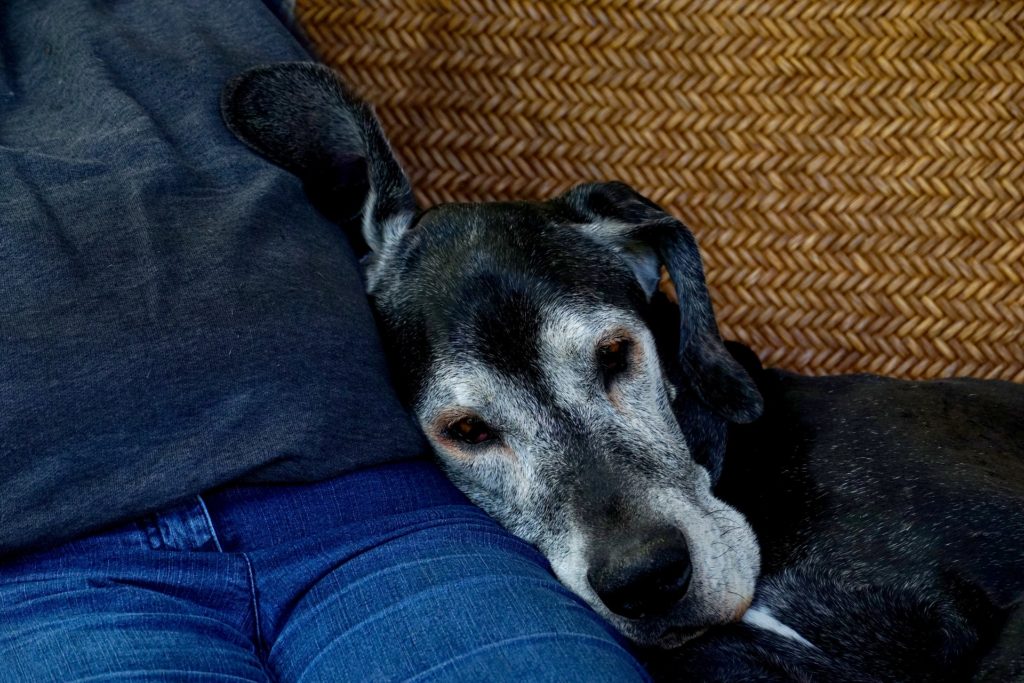One very common question I hear from clients is “Is (s)he too old for this surgery?” or “Do you think surgery is worth it in a pet that old?”
Mind you, the dog could be a 6-year-old Great Dane or a 10-year-old kitty.

Invariably, and with a smile, my answer is “Age is not a disease.” This answer is more serious than it sounds (My “mature” clients actually love that quote!). Cancer, kidney malfunction, a low red blood cell count, those are diseases. Incidentally, they can be treated, sometimes successfully. But age in and of itself is not a disease.
Granted, organs do deteriorate as a dog or a cat ages. This is why we do a physical exam and recommend full blood work before anesthesia and surgery. We routinely see older pets with normal kidney function, normal liver function, normal red blood cell counts, normal everything. If one or several values are abnormal, we need to know before anesthesia and surgery, because we may change a few things.
I recently had the “age” talk several times:
- With the owner of a 12-year-old Lab with laryngeal paralysis. This condition causes a dog to suffocate. Most dogs affected are over 10 years of age. Yet surgery typically gives good results, which means that the condition is merely an unfortunate bump in the road.

- With the owner of a 23-year-old cat. Now, THAT’s old. But the kitty was otherwise healthy, with surprisingly normal blood work. He had a broken leg, which we repaired. The kitty made a full recovery.

- With many owners of pets with cancer. This leads to a more challenging discussion. The discussion is about quality of life vs. quantity of life.
Now, there may be financial considerations, but that’s a whole different subject.
Another common question I hear is “How old do (insert breed) get?”
I believe this is an impossible question to answer. Granted, you can find average lifespans of different breeds on a variety of websites. But averages are only that, averages.
How long do people live?
When we do surgery on an older pet, my favorite compliment is: “(S)he acts like a puppy again”.
Older pets are not exceptional these days. Pets do live longer and longer, thanks to better vaccines, better drugs, better diets, better surgeries, better dental care… and above all more dedicated pet owners. After all, over the years, most pets progressively moved from the barnyard to the back yard, to the mudroom, to the living room, to the bedroom!

Here is another vet’s opinion, which I found on a website that doesn’t exist anymore.
The “too old” argument
Age is relative, not definitive. Being “old” is not a sickness or disease. Although the age of the patient is one consideration when deciding if elective surgery should be done, to state that the procedure should not be done simply because of the dog’s age makes no sense. The true health status, not the age, reveals which patient should or should not be considered a reasonable surgical candidate. The health status evaluation is based upon physical exam, blood and urine tests, and other assessments such as radiography and/or ultrasound.”
I couldn’t have said it better.
Here is the bottom line: when the physical exam and blood work are fairly normal, the pet is in overall good health and has a fixable problem, I tend to believe that this pet is a good candidate for anesthesia and surgery.
Phil Zeltzman, DVM, DACVS, CVJ, Fear Free Certified
